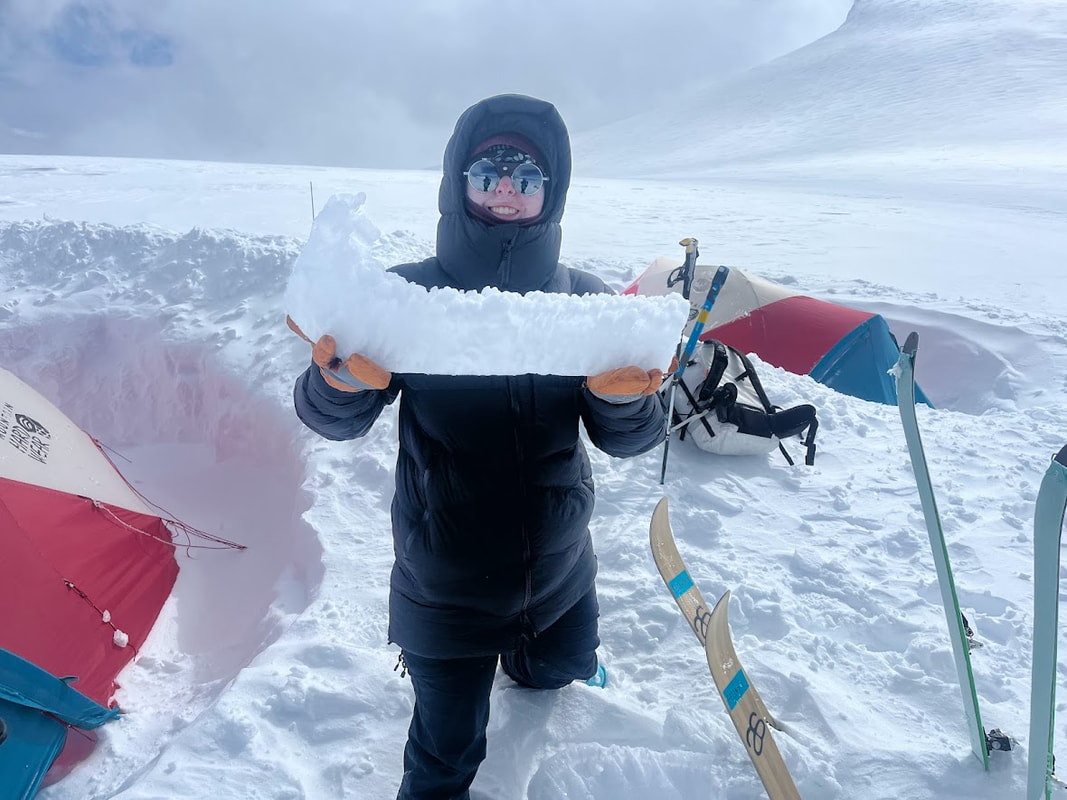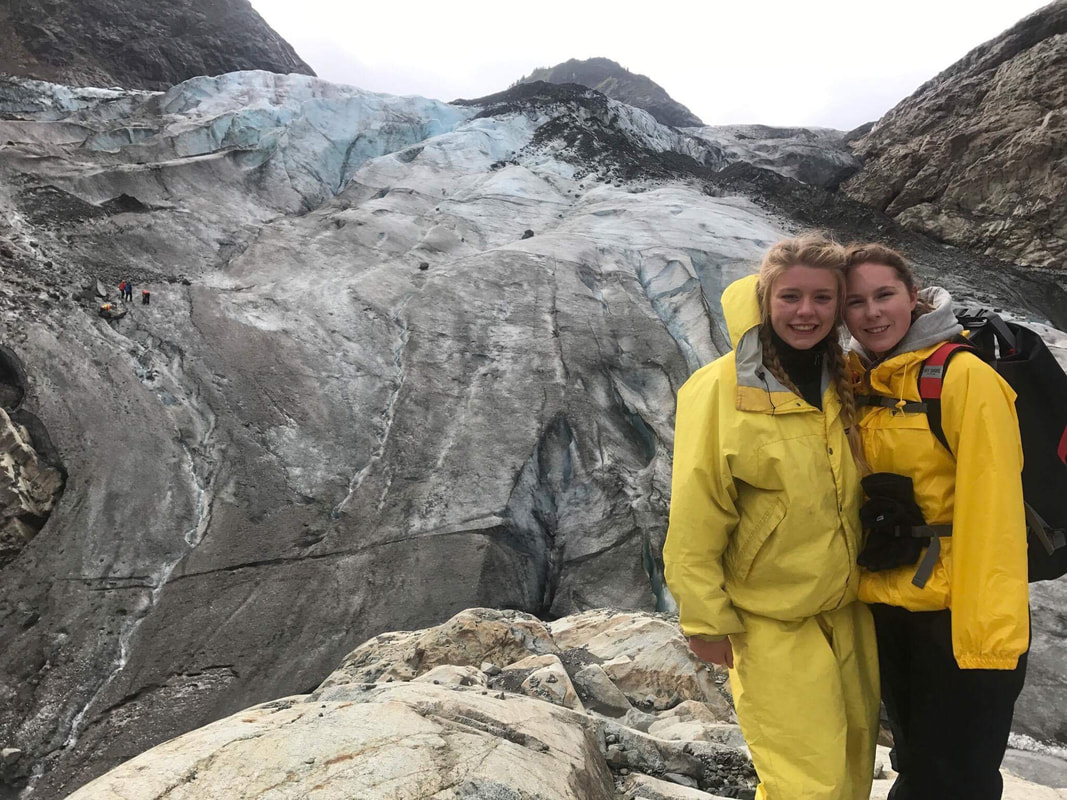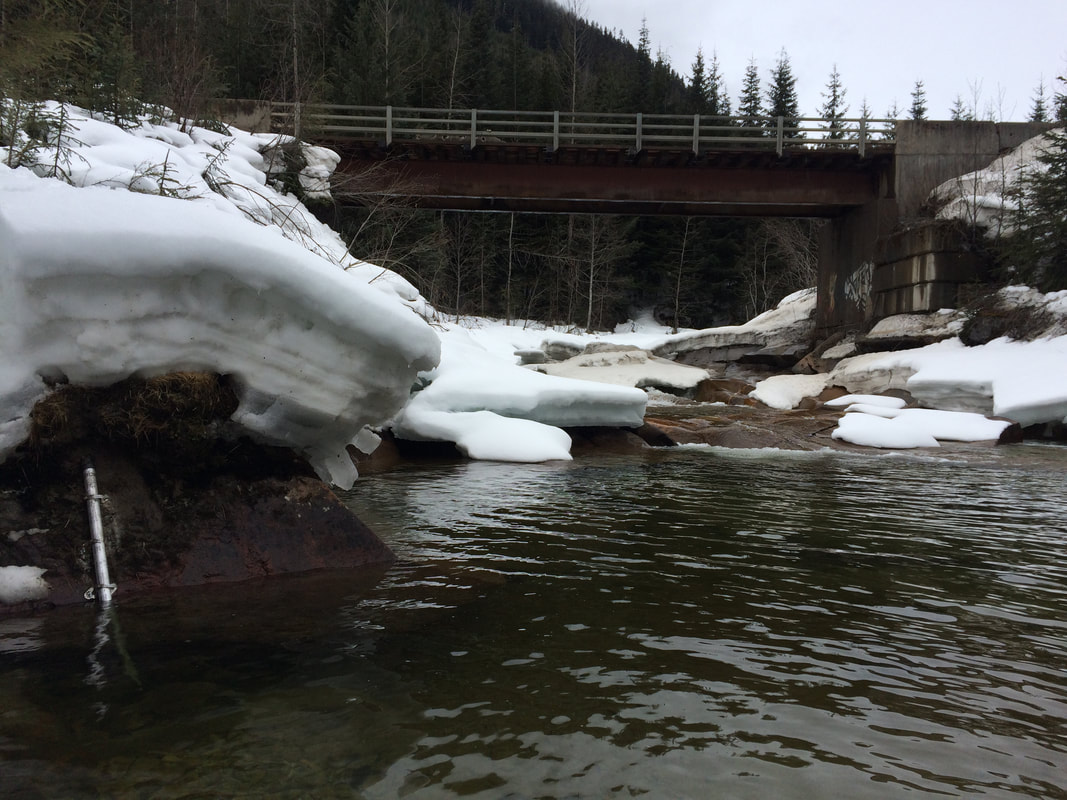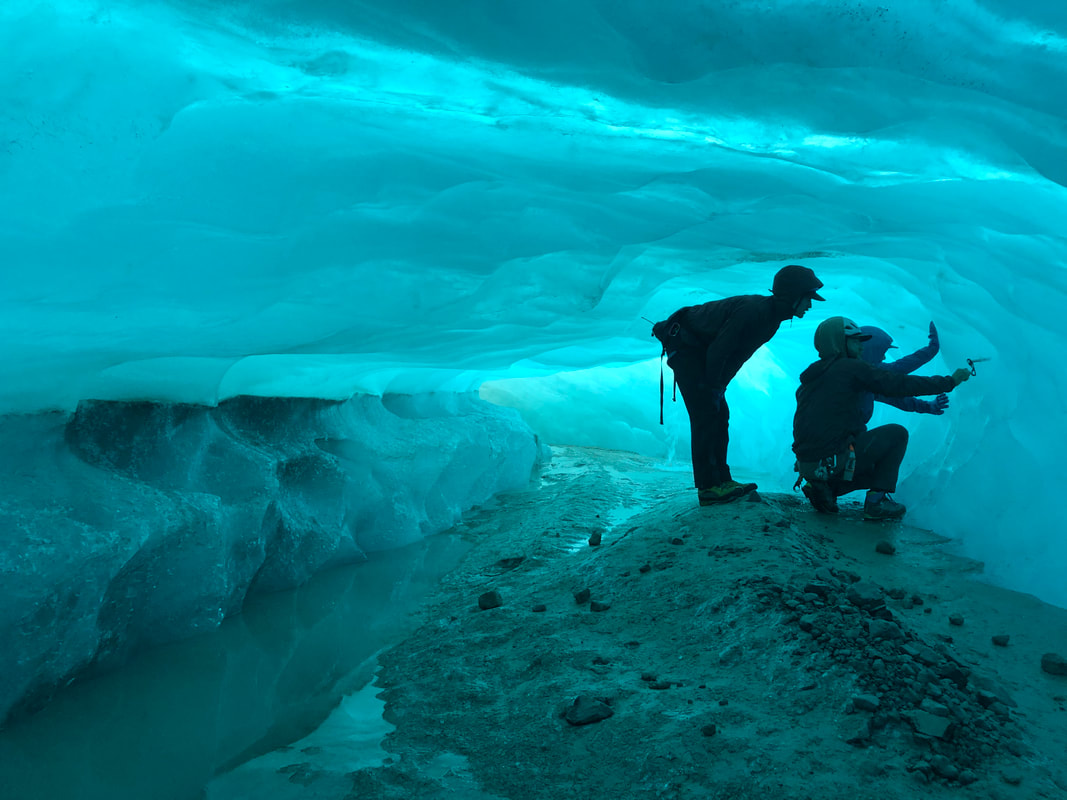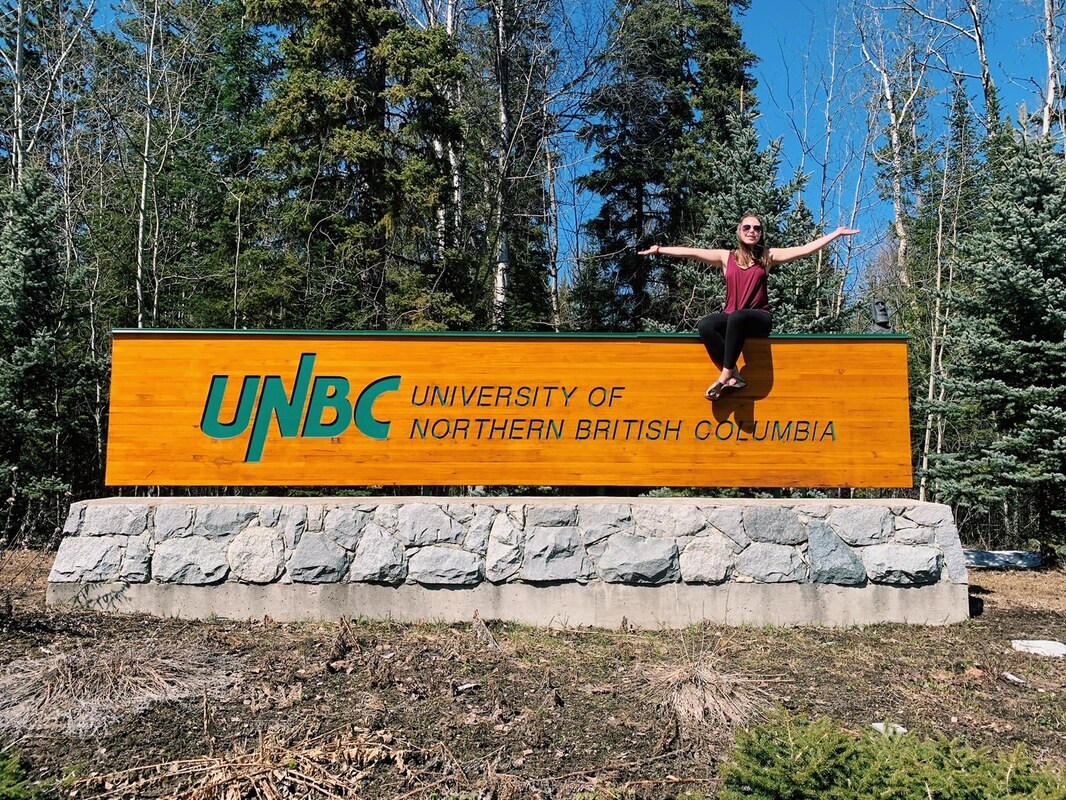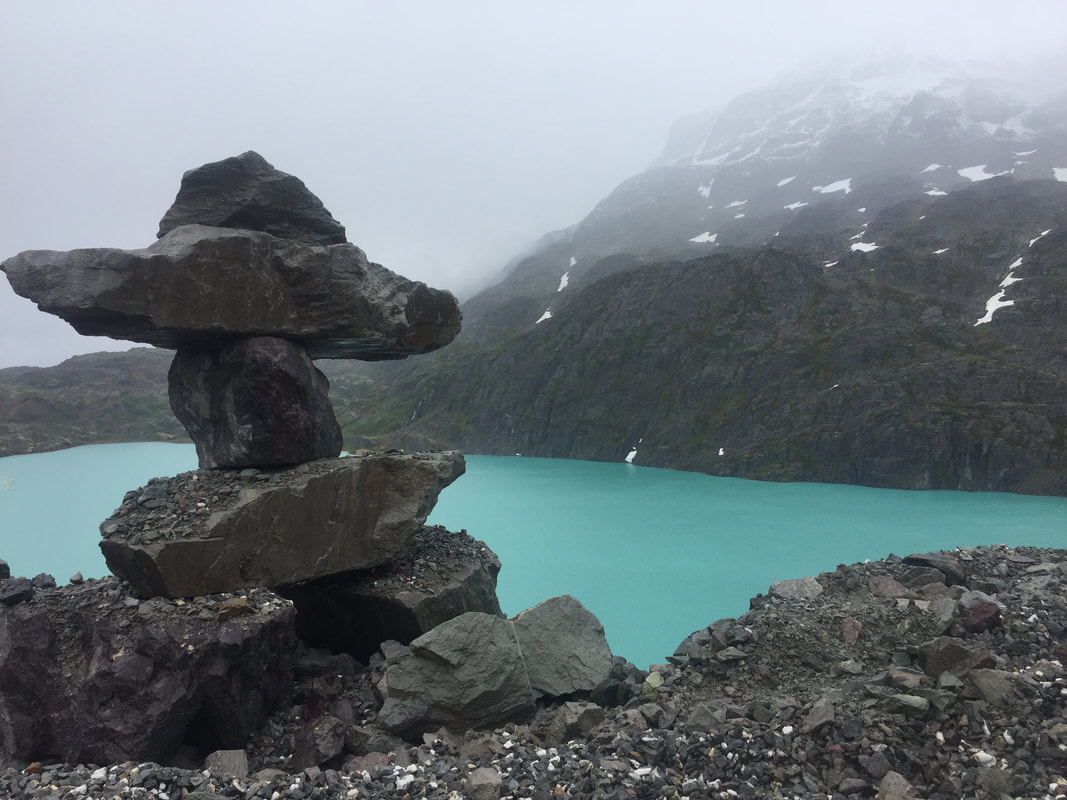A little about myself.I am a Canadian born-and-raised in northwest British Columbia (BC) working to complete my Masters of Science in Earth and Climate Sciences at the University of Maine.
My research interests include contributing to understanding as well as improving predictions and monitoring techniques of snowpack hydrology and its impacts on downstream values along the Coast Mountains using geophysics, remote sensing, and other ground-based observations. My goal is to expand this research further through the Coast Mountains (and closer to home) to better inform communities, policy makers, and scientists alike. In previous years I have worked as an Environmental Consultant, Prospectors Assistant and Research Assistant in BC. I have experience in multi-industry consulting and monitoring of fish, wildlife, and water and air quality in environmentally sensitive areas with local First Nations, government agencies, and non-profit organizations. Pronouns: she/hers |
Education
|
ASc in Environmental Geosciences, 2018
Coast Mountain College, BC, CA Juneau Icefield Research Program, 2019 AK, USA / BC, CA BSc in Environmental Science, 2020 University of Northern British Columbia, BC, CA MS in Earth and Climate Sciences, in progress University of Maine, ME, USA Advisor: Dr. Seth Campbell |
Most commonly asked question: Why Maine?
Well, if you know me personally, I'm sure you've wondered this. Don't worry, you're not alone!
Back in 2019, when I was in my third year of undergrad, I spent my summer as a student with the Juneau Icefield Research Program (JIRP). I heard about JIRP through my undergraduate professors at Coast Mountain College (formerly Northwest Community College) and after visiting southeast Alaska with their field school in 2017, I was determined to participate in JIRP. JIRP, specifically the people I met, easily changed my life for the better. One of those people is the Director of Research for JIRP and my Masters advisor, Dr. Seth Campbell. Seth was one of my mentors on the icefield and has been a dear friend in the years following. He is also an Associate Professor at UMaine, in both the School of Earth and Climate Sciences and the Climate Change Institute. In early 2022, I reached out about pursuing a Masters at UMaine (a topic we discussed while eating dinner in the cookshack at Camp 26 three years prior) and nine months later, I made the 5,300 kilometer trek across the continent!
Although from a map, Maine is a world away from BC, but living here has been pleasantly and surprisingly similar to home. It helps having a community of likeminded individuals who are passionate about the environment and the work they do welcome you with open arms, all nestled into a beautiful, near-coastal landscape (just like home). There are no glaciers in the state (anymore), but the area hosts remnants of the historical ice sheet that once covered the area and provides us with endless research opportunities just as well. Part of my research is focused on characteristics of snow hydrology in Maine, as well as snow and glacier hydrology in southeast Alaska and northwest BC. In a way, moving out east is bringing me closer to home. Working with Seth and the UMaine Polar Geophysics Team, as well as every individual within our shared departments, was an opportunity that only a fool would pass up.
So, in a roundabout way, moving to Maine is allowing me to study cutting edge science and develop a community in the world of cryosphere science that can be applied and grown across the continent, including my own home.
Back in 2019, when I was in my third year of undergrad, I spent my summer as a student with the Juneau Icefield Research Program (JIRP). I heard about JIRP through my undergraduate professors at Coast Mountain College (formerly Northwest Community College) and after visiting southeast Alaska with their field school in 2017, I was determined to participate in JIRP. JIRP, specifically the people I met, easily changed my life for the better. One of those people is the Director of Research for JIRP and my Masters advisor, Dr. Seth Campbell. Seth was one of my mentors on the icefield and has been a dear friend in the years following. He is also an Associate Professor at UMaine, in both the School of Earth and Climate Sciences and the Climate Change Institute. In early 2022, I reached out about pursuing a Masters at UMaine (a topic we discussed while eating dinner in the cookshack at Camp 26 three years prior) and nine months later, I made the 5,300 kilometer trek across the continent!
Although from a map, Maine is a world away from BC, but living here has been pleasantly and surprisingly similar to home. It helps having a community of likeminded individuals who are passionate about the environment and the work they do welcome you with open arms, all nestled into a beautiful, near-coastal landscape (just like home). There are no glaciers in the state (anymore), but the area hosts remnants of the historical ice sheet that once covered the area and provides us with endless research opportunities just as well. Part of my research is focused on characteristics of snow hydrology in Maine, as well as snow and glacier hydrology in southeast Alaska and northwest BC. In a way, moving out east is bringing me closer to home. Working with Seth and the UMaine Polar Geophysics Team, as well as every individual within our shared departments, was an opportunity that only a fool would pass up.
So, in a roundabout way, moving to Maine is allowing me to study cutting edge science and develop a community in the world of cryosphere science that can be applied and grown across the continent, including my own home.
